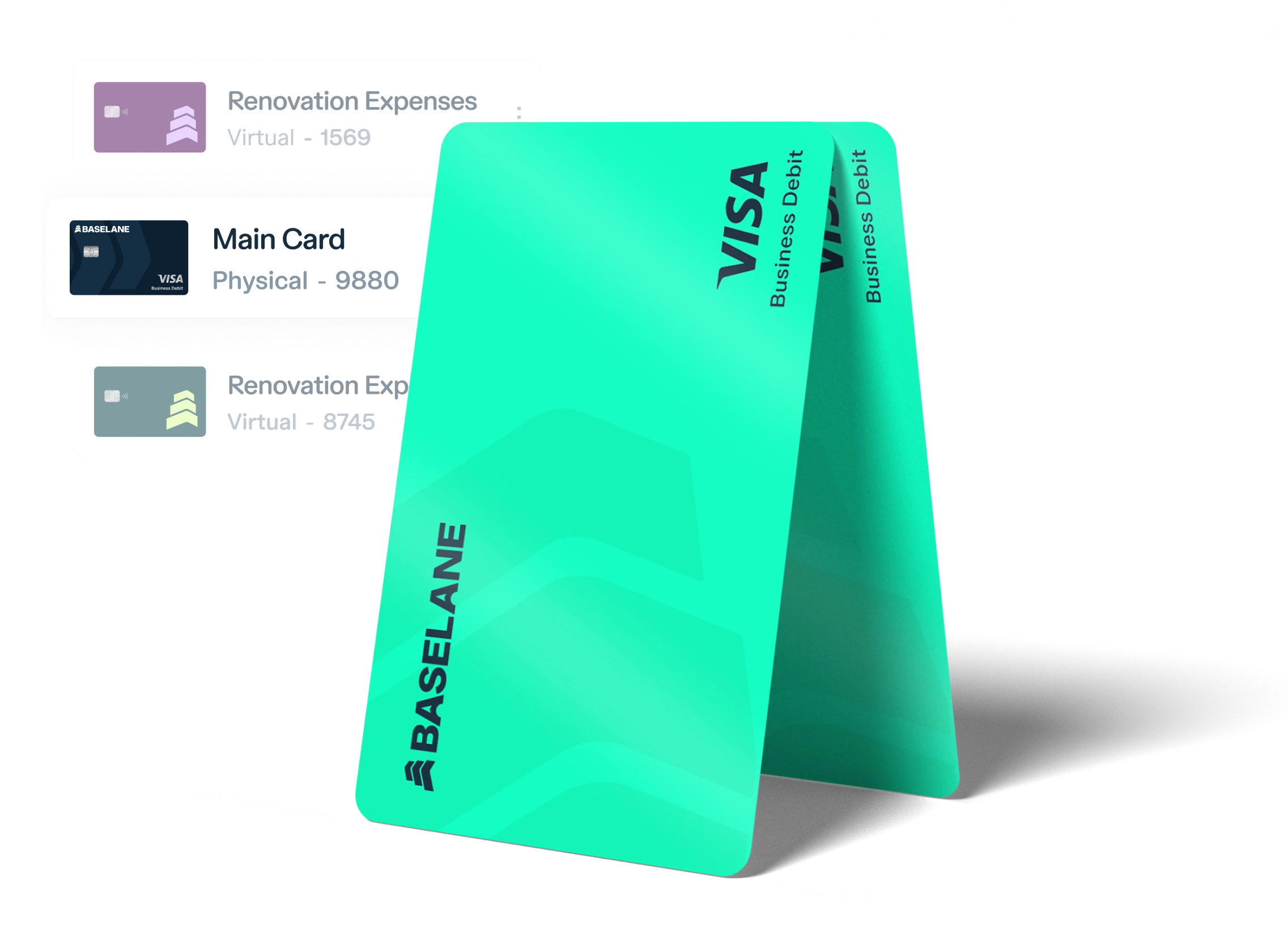Managing rental property finances can be complex, often involving numerous transactions, varied income streams, and distinct expenses. For landlords and real estate investors, a dedicated checking account is not just convenient; it is a strategic necessity.
Discovering no minimum balance checking accounts offers significant financial flexibility and cost savings. This guide details the top picks for 2025, specifically curated for the unique needs of property owners.
Key takeaways
- Dedicated bank accounts offer financial organization, tax benefits, and legal protection for landlords.
- No minimum balance checking accounts save money and provide flexibility, crucial for fluctuating cash flows.
- Key features for landlords include high APY, multiple sub-accounts, integrated tools, and cash back rewards.
- Baselane stands out as an all-in-one solution, integrating banking, rent collection, and bookkeeping.
- Other top picks like Stessa, Relay, Axos Bank, Ally Bank, and Discover offer competitive features for landlords.
Why landlords need a separate, no minimum balance checking account
Operating rental properties successfully requires meticulous financial management, far beyond what a personal bank account can offer. Many landlords are seeking solutions that simplify their operations and reduce unnecessary costs. A separate, no minimum balance checking account is a fundamental tool for real estate investors.
Financial organization and simplified bookkeeping
Maintaining distinct accounts for your rental business is paramount for clear financial oversight. This separation helps landlords easily track income and expenses. It streamlines bookkeeping efforts, making it simpler to categorize transactions. Ultimately, organized finances lead to a clearer picture of your rental property’s performance.
Tax advantages and audit readiness
Separate accounts simplify tax preparation significantly. All rental income and deductible expenses are consolidated in one place. This organized approach can save you time and money during tax season. It also ensures you are well-prepared in the event of an audit.
Legal protection and asset segregation
Using a separate business bank account for rental property assets protects your personal finances. This practice establishes a clear distinction between personal and business liabilities. It can be vital in shielding your personal assets from claims related to your rental properties. For a deeper understanding, explore the differences between a business bank account vs personal bank account.
Cost savings and financial flexibility
No minimum balance checking accounts eliminate monthly maintenance fees, directly reducing your operating costs. This is particularly beneficial for new landlords or those with fluctuating income.
Avoiding common Banking fees can significantly impact your bottom line. Such accounts provide maximum liquidity without penalties, ensuring your capital is always available. You can also explore no fee bank accounts to find more cost-saving options.
Benefits of digital banking for landlords
Many no minimum balance accounts are offered by digital-first banking platforms. These platforms provide advantages like remote management and advanced automation. For landlords, digital banking facilitates seamless remote operations, which is essential for managing properties from anywhere. Learn more about the comprehensive benefits of digital banking.
Essential features for landlord checking accounts
When evaluating banking options for your rental properties, certain features stand out as critical for landlords. Choosing the right account can significantly enhance your financial management efficiency. Focus on accounts that offer specialized tools tailored to real estate investing.
No monthly fees and no minimum balance requirements
The most immediate benefit of these accounts is the absence of recurring fees, which directly impacts your profitability. You avoid penalties for not maintaining a specific balance, offering great financial flexibility. This is especially important for landlords with varying cash flows or seasonal income.
High annual percentage yield (APY)
While checking accounts for landlords typically don’t earn interest, you can maximize returns by linking them to an online high-yield savings account. Extra balances from your operating account can be moved into savings to take advantage of competitive APY rates. This way, your money grows without interfering with day-to-day rental operations. For step-by-step guidance, consider learning how to get a high-yield savings account.
Ability to Create Multiple Sub-Accounts
For landlords with multiple properties, the ability to create separate sub-accounts for each property is invaluable. This simplifies expense tracking and income allocation. It makes financial reporting by property much clearer.
Such a feature is crucial for managing a growing portfolio effectively, as further detailed in choosing a business bank account for rental property.
Integrated Rent Collection and Property Management Tools
The ideal landlord checking account should offer built-in rent collection features. This streamlines the process of receiving payments from tenants. Some platforms also integrate with property management software, centralizing your operations. This level of integration can save significant time and reduce manual errors.
FDIC Insurance Limits
Ensure your funds are protected by FDIC insurance. Standard coverage is up to $250,000 per depositor, per institution. Traditional banks typically provide this limit per account holder, while many online and fintech platforms extend coverage by spreading deposits across networks of partner banks.
Mobile Banking and Ease of Access
A robust mobile banking app allows landlords to manage finances on the go. You can deposit checks, transfer funds, and review transactions from anywhere. Ease of access through intuitive digital tools enhances convenience and efficiency.
ACH and wire transfer capabilities
The ability to send and receive funds via ACH and wire transfers is essential for property operations. This facilitates rent payments, vendor payments, and transfers between accounts. Reliable transfer options ensure smooth financial operations.
Best no minimum balance checking accounts for landlords 2025
Choosing the right no minimum balance checking account can significantly streamline your financial management as a landlord. Here are some of the top platforms and banks for 2025, each offering unique benefits for real estate investors. We’ve highlighted their strengths, features, and specific advantages for property owners.
Baselane
Baselane is a financial technology company uniquely designed for independent landlords, providing an integrated banking platform. It offers unlimited separate accounts by property, making financial organization seamless. Baselane has no monthly fees and no minimum balance requirements, aligning perfectly with cost-saving goals.
Key Features: Baselane provides an APY ranging from 1.75% to 3.35% on deposits. The platform integrates rent collection and accounting directly, simplifying financial management.
Pros for Landlords: Landlords benefit from automated transaction tagging, which simplifies bookkeeping and tax preparation. The integrated rent collection ensures reliable and on-time payments. Baselane allows landlords to organize income and expenses by property, saving significant time.
Cons for Landlords: Baselane currently operates as a web-based platform, but it is fully compatible with mobile browsers for on-the-go access. A dedicated mobile banking app is in development, which will provide an even more streamlined experience once released.
Why it stands out for landlords needing no minimums: Baselane is highlighted by The Close as “Best for all-in-one landlord banking” due to its comprehensive and integrated features. Its focus on real estate investors makes it a powerful choice for those seeking a unified financial solution without balance restrictions. For Airbnb hosts specifically, Baselane’s features can be highly beneficial, making it a strong candidate for the best bank account for airbnb.
Stessa
Stessa is a financial technology company that offers cash management accounts tailored for real estate investors. It focuses on automating financial tracking and performance insights. Stessa’s platform has no monthly fees and no minimum balance requirements.
Key Features: Stessa offers a competitive APY of 2.31%–3.98% on its cash management accounts. It provides automated rent collection and tax preparation tools. Landlords can create property-specific accounts to easily separate finances.
Pros for Landlords: Stessa helps landlords automate income and expense tracking. Its robust reporting features offer real-time insights into property performance. The platform simplifies tax time by generating the necessary reports.
Cons for Landlords: While offering extensive financial tracking, Stessa’s core banking features might not be as broad as those of traditional banks. It primarily serves as a financial management and cash flow optimization tool.
Relay
Relay is a financial technology company designed for small businesses, offering banking solutions with no monthly fees and no minimum balance. It provides unique features for managing finances across multiple entities or teams. Relay focuses on clarity and control over business spending.
Key Features: Relay allows businesses to open up to 20 checking accounts and issue up to 50 debit cards. It offers team permissions, enabling landlords to grant specific access levels to property managers or partners. Relay provides an APY of up to 3.03% on savings accounts.
Pros for Landlords: The ability to create multiple checking accounts is ideal for separating finances by property. Team permissions facilitate collaboration while maintaining financial control. This makes it easier to manage expenses for different units or portfolios.
Cons for Landlords: Relay is a general business banking platform, so it may lack some specific integrations for rent collection or specialized real estate reports. Landlords might need to integrate it with separate property management software.
Axos Bank
Axos Bank is an online-only bank offering various checking accounts with no monthly maintenance fees and no minimum balance requirements. It is known for its competitive interest rates and customer-friendly features. Axos provides a fully digital banking experience.
Key Features: Axos Bank offers a rewards checking account with an APY up to 3.30%. It provides unlimited ATM fee reimbursements nationwide. Axos also offers various online lending solutions, which can be beneficial for real estate investors.
Pros for Landlords: The high APY on checking accounts helps maximize returns on operational funds. Unlimited ATM reimbursements provide convenience and cost savings for cash transactions. Its online lending options could support future property acquisitions.
Cons for Landlords: Being an online-only bank, Axos does not have physical branches. This might be a drawback for landlords who prefer in-person banking services. It also lacks specific property management integrations.
Ally
Ally Bank is a popular online-only bank offering a range of financial products, including interest-bearing checking accounts with no monthly fees and no minimum balance. It consistently ranks high for customer satisfaction and digital tools. Ally is known for its user-friendly interface.
Key Features: Ally Bank offers a competitive APY of 0.10% – 0.25% on its checking accounts, varying by balance. It provides unlimited ATM fee reimbursements at Allpoint ATMs and up to $10 per statement cycle for out-of-network ATMs. Customers can set up “spending buckets” to organize funds, similar to sub-accounts.
Pros for Landlords: The interest-earning potential on checking balances adds value over time. ATM reimbursements reduce costs for cash withdrawals. Its digital tools and mobile app make managing finances convenient.
Cons for Landlords: Ally Bank is an online-only institution, which means no physical branch access. While useful, its spending buckets are not as explicitly designed for property-level separation as dedicated landlord platforms.
Other Notable Mentions
Beyond these top picks, several other institutions offer competitive no minimum balance checking accounts that landlords might consider. Capital One 360 Checking offers no monthly fees and provides interest-earning capabilities.
Bluevine, a financial technology company, provides business checking accounts with no monthly fees, unlimited transactions, and a competitive APY on balances up to a certain limit. First Internet Bank also offers business checking options with competitive rates and minimal fees, often favored by those seeking online-only solutions.
How to choose the best no minimum balance account for your rental business
Selecting the right checking account is a critical decision for your rental property business. It requires careful consideration of your specific needs and operational style. A thoughtful approach ensures you choose an account that supports your financial goals effectively.
Assess your property portfolio size and complexity
Consider how many properties you manage and their financial intricacy. A single-property landlord might have different needs than someone managing a multi-unit complex. For landlords with multiple properties, accounts offering numerous sub-accounts are highly beneficial. If you operate as a sole proprietorship, understanding a sole proprietorship business bank account can also guide your choice.
Prioritize key features based on your needs
Determine which features are most important for your day-to-day operations. Do you need integrated rent collection, robust bookkeeping tools, or high cash back rewards? List your top priorities to narrow down your options efficiently. Evaluating your overall real estate finances can help identify essential features.
Compare fees beyond minimum balances
While no minimum balance accounts eliminate certain fees, other charges may apply. Look closely at potential costs for wire transfers, out-of-network ATM usage, or specific transaction types. Hidden fees can erode your savings. Understanding all potential Banking fees is vital for cost-effective banking.
Consider APY and earning potential
If earning interest on your operating capital is a priority, compare the APY offered by different accounts. Even a small percentage can add up over time, especially with higher balances. This helps maximize the productivity of your funds.
Evaluate customer support and digital tools
Reliable customer support is essential for resolving any banking issues swiftly. Assess the quality of the mobile app and online banking platform. An intuitive interface and robust digital tools can significantly enhance your banking experience. For more detailed guidance, consider reviewing what bank should i choose for a real estate business.
Specialized Accounts for Landlords
Beyond standard checking, landlords often benefit from specialized account types to manage specific aspects of their finances. These accounts can help segregate funds for different purposes, ensuring financial compliance and preparedness. No minimum balance accounts can often serve these specialized needs effectively.
You might need an interest reserve accounts to hold funds for future interest payments or property improvements. An escrow reserve payment account is crucial for security deposits and last month’s rent. These accounts ensure you comply with legal requirements for tenant funds. Similarly, an operating reserve real estate account can hold funds for unexpected expenses, like maintenance or vacancies. Finally, a replacement reserves account is essential for long-term capital expenditures, such as roof replacements or major appliance upgrades.
Avoid Common Bank Fees
Choosing a no minimum balance checking account is a great first step to saving money, but landlords should remain vigilant about other potential fees. Understanding common bank charges can help you avoid unnecessary expenses. Proactive financial management includes minimizing these costs.
Always review the fee schedule for any account before opening it. Look out for overdraft and non-sufficient funds (NSF) fees, which can occur if you spend more money than available. Out-of-network ATM fees can also add up, so utilize your bank’s network or look for accounts with reimbursements. Foreign transaction fees might apply if you use your card abroad, though less common for domestic landlords. Finally, be aware of any account closure fees, although these are rare for basic checking accounts.
Bottom line
Choosing the right no minimum balance checking account is a strategic decision that empowers landlords with financial flexibility and control. These accounts help you save on fees, organize your finances, and prepare for tax season with ease. By carefully evaluating features like APY, sub-account capabilities, and integrated tools, you can find the perfect banking partner for your rental business.
For landlords seeking an all-in-one financial solution designed specifically for real estate investors, consider Baselane. It offers unlimited accounts by property, competitive APY, integrated rent collection, and robust bookkeeping features—all without monthly fees or minimum balance requirements. Empower your real estate journey by streamlining your finances and maximizing your investment’s potential.
FAQs
A no minimum balance checking account allows you to maintain any balance, even zero, without incurring monthly maintenance fees. This provides financial flexibility and helps landlords avoid unnecessary costs.
Landlords should use a separate checking account for clear financial organization, simplified tax preparation, and legal protection of personal assets. This practice isolates business transactions from personal ones.
Key features for landlords include no monthly fees, the ability to create multiple sub-accounts per property, integrated rent collection, competitive APY, and cash back rewards. These features streamline property management finances.
Yes, online-only banks are often suitable for landlords as they typically offer no minimum balance accounts, competitive APY, and robust digital tools for remote management. They are designed for convenience and efficiency.
Baselane provides a banking platform with no monthly fees, no minimum balance, and the ability to create unlimited accounts per property. It integrates rent collection and bookkeeping, streamlining financial management for landlords.







